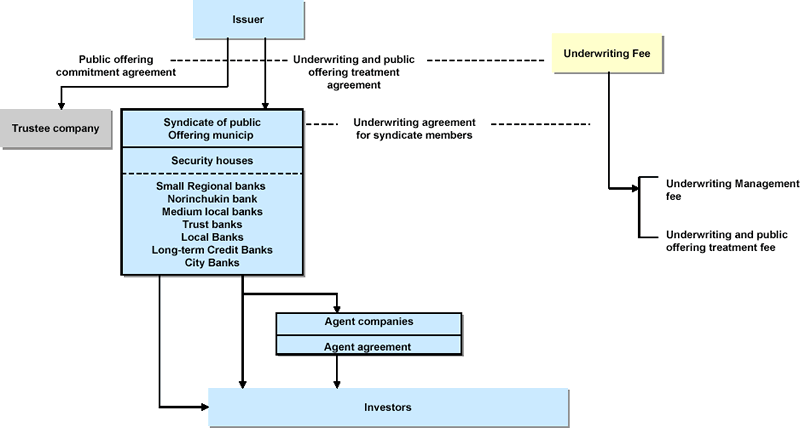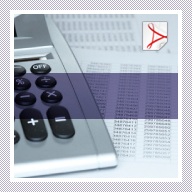- TOP>
- Overview of Local Government Bonds in Japan>
- Local Government bonds issuance methods
Local Government bonds issuance methods
In general, smaller offerings underwritten by banks and other entities are underwritten by a local government-designated financial institution. Larger offerings are usually underwritten by a syndicate of financial institutions. However, circumstances may vary depending on issuer.
Securities firms and other financial institutions may form an underwriting syndicate for each Local Government Bond issuer. They may then conclude an underwriting and distribution agreement with the issuer. The issuer also concludes a distribution agreement with a trustee.
Securities firms previously were the only syndicate members handling scales of publicly-offered Local Government Bonds. Since April 1983, however, banks and other types of financial institutions have also been able to handle sales. Any unsold amounts are bought by the securities firm and other financial institutions. Also, securities firms that are not members of the underwriting syndicate may receive Local Government Bonds from member securities firms for subsequent sale.
The government (The Ministry of International Affairs and Communications) and the underwriting syndicate previously negotiated issuance terms of Local Government Bonds, including issuance schedule, after issuance terms for JGBs (Japanese Government Bonds) were determined. Issuance terms for Local Government Bonds are announced the day after JGB auction results are announced. The syndicate liaison group then approves of each month's issuer, issuance amount, and issuance terms, and the terms are published on or around the 20th of the month. The payment date is around the 25th .
Local Government bonds issuance terms are determined based on negotiations between the issuer and the underwriting syndicate. They take into account a broad range of factors, including muni trading conditions, spreads over JGBs, and trends in the overall bond market.





